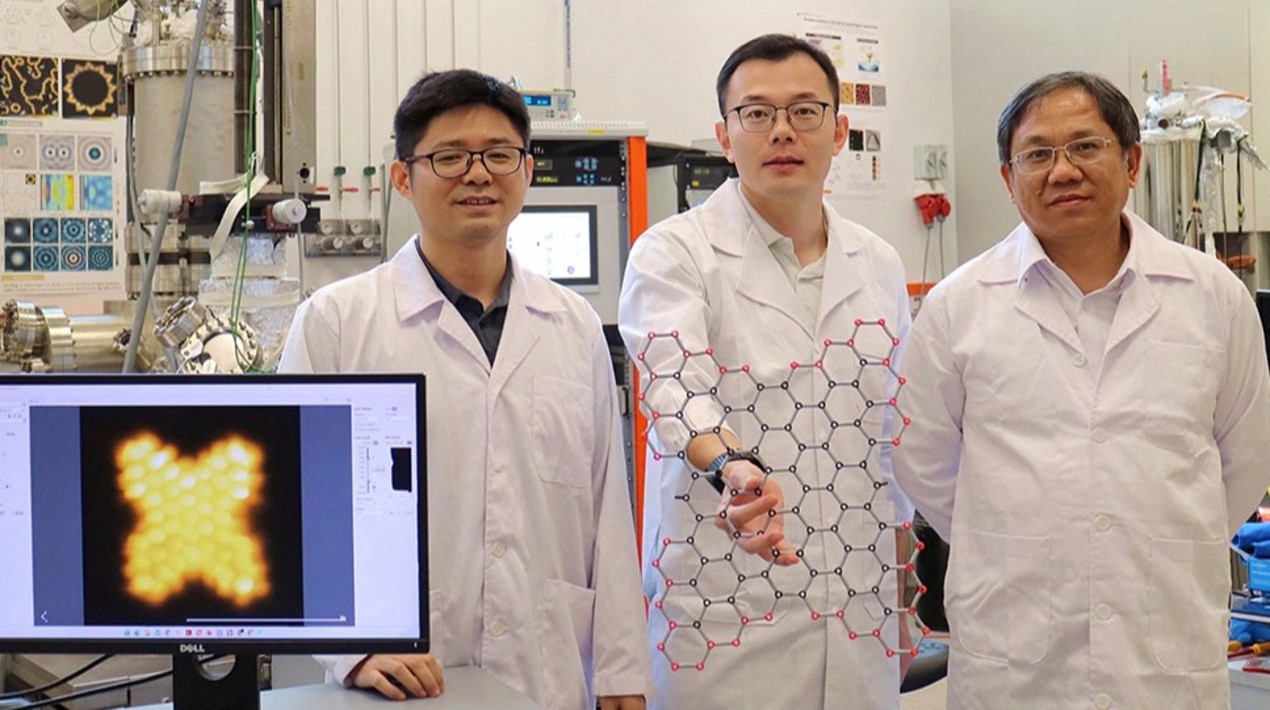
Researchers from Nanyang Technological University, Singapore (NTU Singapore) have developed the capability to 3D print an unfurnished bathroom in less than a day.
After printing, the bathroom is furnished with toilet fittings to become a pre-fabricated unit, ready for use in construction projects. Its interior includes a sink, mirror, shower, toilet bowl, ceramic tiled walls and flooring, complete with concealed drains and piping.
This could potentially help firms build prefabricated bathroom units (PBU) about 30 per cent more quickly and 30 per cent lighter than current PBUs.
In the past four years, the research team focused on developing a special concrete mix which is fluid enough to flow through the hoses and print nozzle, yet can harden fast enough so that the next layer is able to be printed on it. On top of ensuring a consistent print quality, the final product also has to be as strong as conventional concrete.
The printing process takes half the time needed in the construction of a conventional bathroom unit that uses concrete casting. The fittings, tiling and finishing will typically take another five days.
This innovation was developed by a joint research team led by Assoc Prof Tan Ming Jen from NTU’s Singapore Centre for 3D Printing, in partnership with Sembcorp Design and Construction, and Sembcorp Architects & Engineers.
The Singapore Centre for 3D Printing was set up by National Research Foundation (NRF) Singapore, to conduct research and development on 3D printing technology, and accelerate the adoption of the technology by companies.
Mr Lim Tuang Liang, Executive Director at the Research, Innovation and Enterprise Coordination Office at NRF, said: “Singapore’s strength in advanced manufacturing technologies is deepening not only in the area of research, but also in the adoption and deployment of these technologies by our companies. This latest project between NTU and Sembcorp is testament to our strong research and translational capabilities in 3D printing. We are excited to promote more collaborations between our research institutes and innovation-driven companies to drive the adoption of key technologies in the manufacturing sector.”
This Proof-of-Concept aims to improve productivity for Singapore’s building and construction industry through the use of digital and robotic fabrication methods to reduce skilled labour and manpower requirements.
Since 2014, it has been a requirement for all non-landed residential Government Land Sale (GLS) sites in Singapore to use Prefabricated Bathroom Units (PBU) in their construction process. PBUs are usually cast from concrete and completely preassembled offsite with all necessary finishes and fittings, ready to be lifted and installed in a building project.
By shifting most of the fabrication off-site to the controlled environment of a factory, PBUs yield time and manpower savings of about 60 per cent, compared to on-site construction which was the practice prior to 2014. There is also better control over the materials and the prefabrication process, resulting in higher quality finishes and lesser wastage.
Assoc Prof Tan said 3D-printing a bathroom unit could help manufacturers halve their production time while lowering transport costs, carbon emissions and materials wastage. Less space is required to create and store the same number of PBUs in land- scarce Singapore, since conventional PBUs take about two weeks before they can be ready.
“By being able to print-on-demand, companies can save on their inventory costs as well as manpower costs, as they don’t have to hold as much stock and their workers can be redeployed to do higher-level tasks. This approach improves the safety of the workplace, since robots are doing the construction of the bathroom unit,” Prof Tan explained.
Meets or exceeds industry standards
The larger 3D-printed PBU has already undergone stringent industry tests, with the results showing that it has met the required strength and robustness as spelt out in Singapore Standard SS492: 2001.
It is currently undergoing fire resistance tests as part of the requirements under the Building Innovation Panel (BIP) PBU acceptance framework.
The BIP is an inter-agency platform which accelerates the development and implementation of feasible methods, processes, solutions, technologies or materials – to cover solutions beyond those that raise productivity to any type of innovation that can improve Singapore’s Built Environment.
The technology and know-how employed in this multi-disciplinary project is protected by a Technology Disclosure filed through NTU’s innovation and enterprise company, NTUitive, and is jointly owned between the university and Sembcorp.
Moving forward, the team is looking forward to getting the required approvals for trials from the Building and Construction Authority of Singapore (BCA) and to commercialise the technology through licensing or a spin-off company.



















